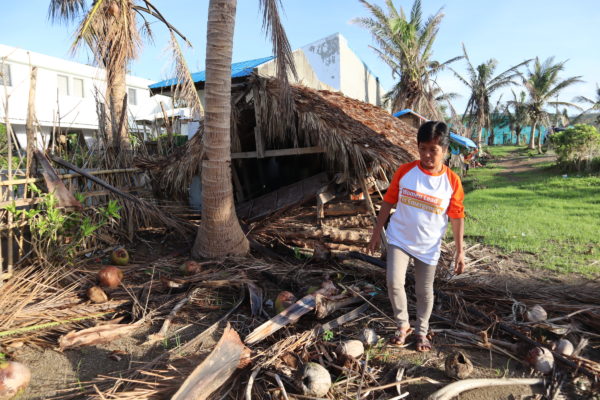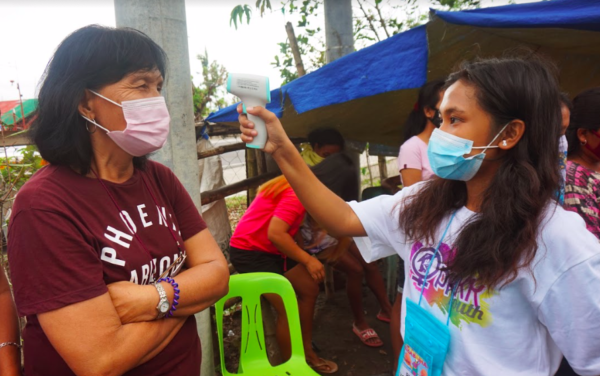“During the past few weeks, everything is so fresh – what we’ve gone through. We have been devastated by the three typhoons,” said Marilou.
Marilou leads SABALO, a local organisation of fishers, farmers, women and youth, and has spent the last few years working closely with local women’s organisations taking action to respond to the increasing number of extreme weather events and disasters.

“For the emergency response, we are gathering data and checking in on our affected members. We are also collecting information about how many houses are damaged, and we have provided some relief goods such as rice, noodles, and canned goods.” After Typhoon Rolly in October 2020, Marilou led a rapid needs assessment to understand the challenges her community was facing. When Typhoon Ulysses hit in November, Marilou worked with local partner, PKKK (National Rural Women’s Coalition), to support women with the clean up so they can get back to their livelihoods and day to day life.
COVID-19 has complicated recovery efforts. When Marilou and her team of volunteers are working in the community, they must be careful not to spread the virus. “ActionAid has provided us with hygiene kits and that is very important for us, especially during this pandemic. We need those facemasks and face shields when we go outside,” she said.

They also require people collecting ration kits to comply with their safety policies. “When we do the distribution, we ask for their cooperation to observe physical distancing and other safety protocols. We also have thermal scanner to check their body temperature before entering the distribution area, we also asked them to sanitize using alcohol.”
In the span of just three weeks, Typhoons Rolly, Ulysses and Molave tore through the Philippines, destroying homes and livelihoods and leaving 207 people dead. Many women and communities have been left feeling exhausted.
Extreme weather events are becoming more and more frequent in the region. And although they contribute least to climate change, it is the world’s most vulnerable populations that are most at risk from its negative effects.
“I think this is happening because of climate change or global warming. It’s too bad that we are the most affected.”
Looking to the future, Marilou is hopeful that women in her community will continue to lead emergency responses.
“For the community, I wish them to become stronger [to face adversities]. We help one another to rise. We have this mantra: ‘all for one, and one for all’. That’s our motto in our community.”